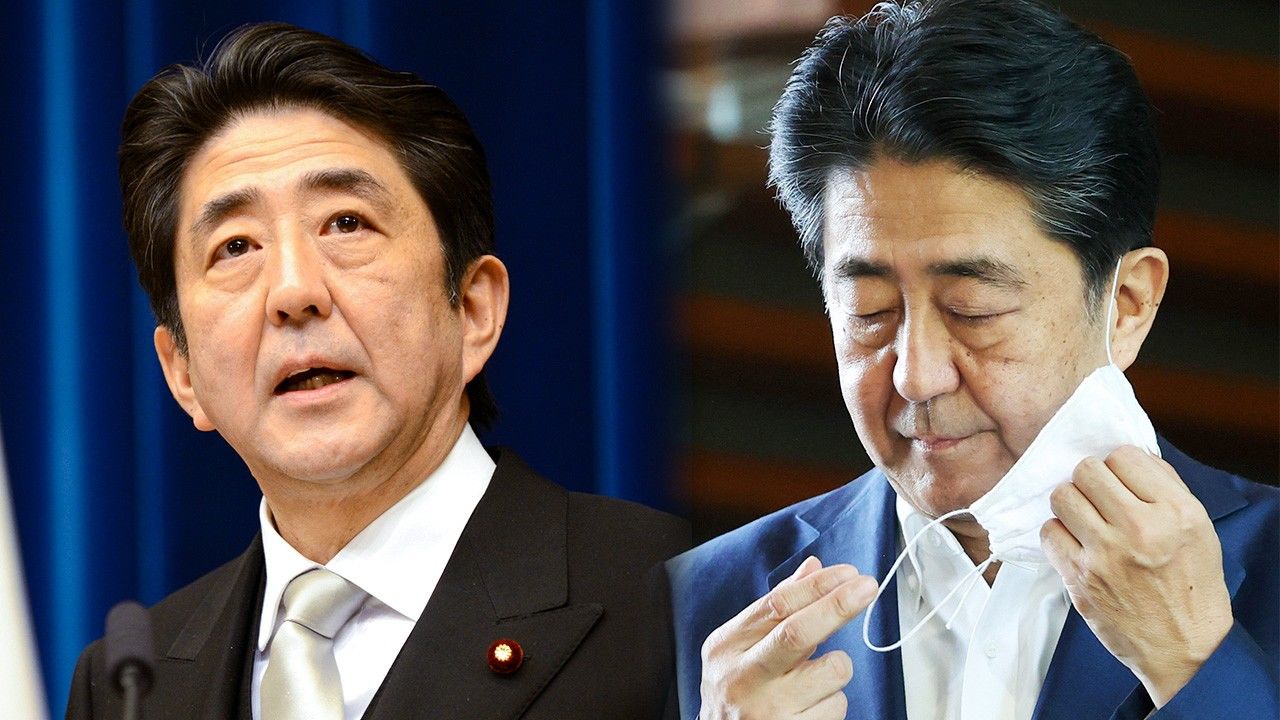
1. A rundown of the major events during Abe Shinzō’s time as prime minister, from his return to office in December 2012 through his August 2020 announcement that he would resign.
2. Prime Minister Abe Shinzō announced his resignation for health reasons at a press conference on August 28, 2020, due to a recurrence of his chronic ulcerative colitis.
3. He said that if he cannot confidently fulfill his responsibilities in the post he should step aside. The table below shows the major events since he returned to the prime minister’s office in December 2012.
| December 2012 | 4. Liberal Democratic Party wins lower house election and returns to government, led by Abe Shinzō as prime minister. |
| January 2013 | 5. Government and Bank of Japan release joint statement establishing inflation target of 2%. |
| September 2013 | 6. Tokyo chosen as host for 2020 Olympics and Paralympics. |
| April 2014 | 7. Consumption tax rate raised to 8%. |
| July 2014 | 8. Government reinterprets the Constitution to allow for collective self-defense. |
| November 2014 | 9. Planned raising of consumption tax rate to 10% in October 2015 delayed to April 2017. |
| December 2014 | 10. Abe re-elected as prime minister. |
| September 2015 | 11. Security legislation allowing collective self-defense passed through Diet. |
| June 2016 | 12. Raising of consumption tax rate further delayed until October 2019. |
| August 2016 | 13. Then Emperor Akihito expresses a desire to abdicate in a video message. |
| May 2017 | 14. Abe sets 2020 as a target year for enforcing a revised Constitution. |
| October 2017 | 15. Abe re-elected as prime minister. |
| May 2019 | 16. Emperor Naruhito ascends to the throne and the Reiwa era begins. |
| October 2019 | 17. Consumption tax rate rises to 10%, although some items remain at 8%. |
| November 20, 2019 | 18. Abe becomes Japan’s longest-serving prime minister at 2,887 days, including his 2006–7 term in office. |
| March 2020 | 19. Tokyo Olympics and Paralympics postponed until 2021. |
| April 2020 | 20. Nationwide state of emergency declared to contain COVID-19 outbreak. |
| August 24, 2020 | 21. Abe becomes Japan’s longest continuously serving prime minister, at 2,799 consecutive days since 2012. |
| August 28, 2020 | 22. Abe announces his intention to resign. |
Discussion
1. What will he be best remembered for?
2. Who do you think was the greatest prime minister historically?



